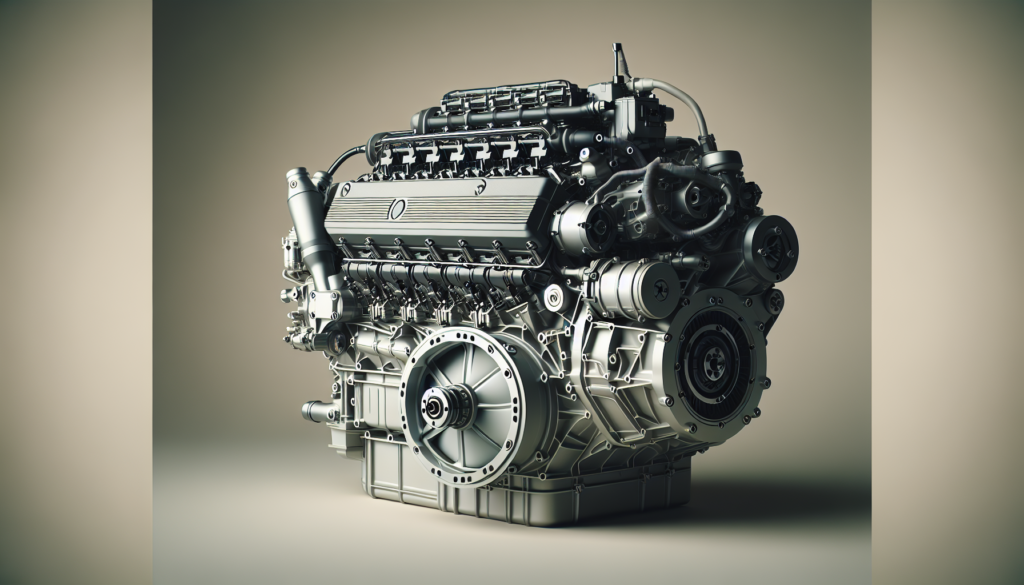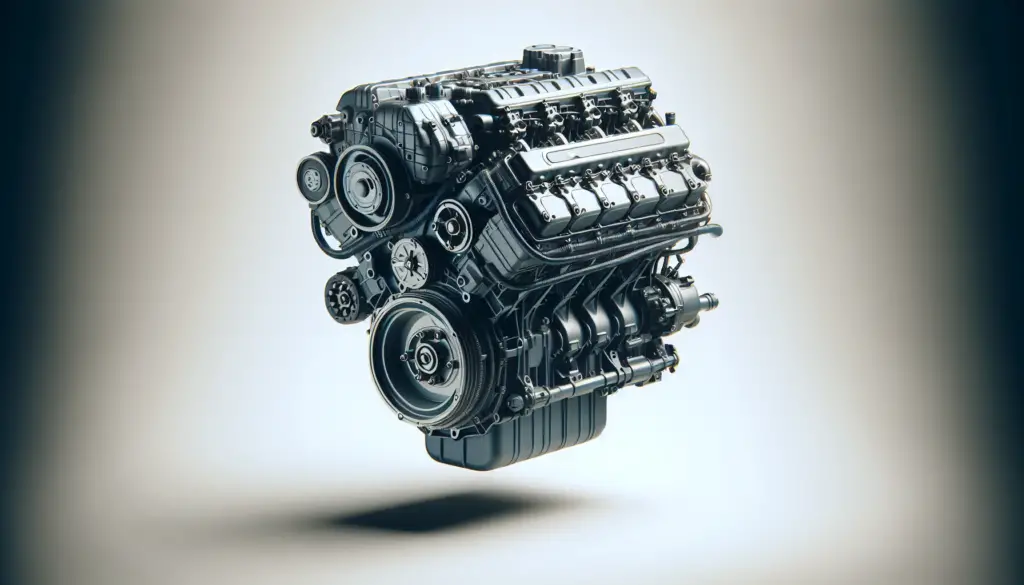You’re the captain of your own ship, you know the thrill of the ocean, the call of the sea which tempts you to set sail again. And let’s be frank, it comes with expenses too. One of them being the fuel cost for your ship’s engine. But imagine if you could reduce it significantly, wouldn’t that be great? In the following article, we have assembled some top tips on how to increase the fuel efficiency of your boat engine. It’s like gaining the wind in your sails but for your engine. Get ready to increase the adventure while decreasing the fuel cost with ‘Top Fuel Efficiency Tips For Boat Engines.’
Understanding Fuel Efficiency
Fuel efficiency is a term you’ve probably come across multiple times, particularly in relation to cars and trucks. But did you know that it’s equally important when it comes to boats?
Defining fuel efficiency
Fuel efficiency, to put it simply, refers to how much distance your boat can travel on a given amount of fuel. It’s usually measured in MPG, or miles per gallon. The higher the MPG of your boat, the better its fuel efficiency is. Some factors affecting your boat’s fuel efficiency include size and weight of the boat, engine type, and operating conditions.
Fuel efficiency for boat engines
When it comes to boat engines, fuel efficiency is all about ensuring the power generated by the engine translates into forward motion as effectively as possible. Some engines are more efficient than others. For example, new models often feature advanced technology that emphasises on improved energy usage.
The importance of fuel efficiency
Why exactly is fuel efficiency so crucial? For one, it helps you save money on fuel costs and reduces the boat’s overall operating costs. Moreover, having a fuel-efficient boat ensures that fewer emissions are released into the atmosphere, contributing to a cleaner and healthier environment.
Choosing the Right Type of Boat Engine
Understanding different types of boat engines and their inefficiencies can help you make an informed choice.
Understanding different types of boat engines
Boat engines come in several types, with most common ones being inboard, outboard, and diesel or gasoline engines. Each comes with their own set of pros and cons which can influence their energy consumption.
Efficiency of inboard engines
Inboard engines are typically more fuel-efficient compared to their counterparts as they’re designed to generate greater torque and require less RPM (Rotations per Minute), which result in better fuel economy.
Efficiency of outboard engines
On the contrary, outboard engines are lighter and considered more versatile. They’re easier to maintain, however, their fuel efficiency is often lower than inboard engines.
Efficiency of diesel engines versus gasoline engines
In between these types, diesel engines are generally more fuel efficient than gasoline ones although they may cost you more upfront. Diesel packs more energy per gallon, hence offering a longer range.

Regular Boat Engine Maintenance
To ensure your boat operates at its maximum efficiency, regular engine maintenance is crucial.
The impact of maintenance on fuel efficiency
Regular maintenance ensures all parts of the engine are running smoothly, hence avoiding unnecessary energy wastage. Neglected parts can cause your engine to work harder, increasing its fuel consumption.
Importance of regular oil changes
Oil changes are essential as they ensure your engine runs smoothly by lubricating the parts. Old oil can build up and make your engine work harder, reducing its fuel efficiency.
The right cooling system maintenance procedures
A well-maintained cooling system is important to prevent engine overheating. Regular checks and coolant replacement can help optimize your engine performance and keep it running efficiently.
Keeping your engine clean
Lastly, cleaning your engine regularly can help prevent dirt and debris buildup which could reduce its efficiency.
Proper Boat Loading
How you load your boat can also influence fuel efficiency.
Impact of boat loading on fuel efficiency
Overloading your boat increases its weight, forcing the engine to work harder and hence use more fuel.
Avoiding overloading
Always ensure not to exceed the boat’s maximum capacity. The weight should be evenly distributed across the boat for better balance and fuel efficiency.
Balancing the weight on your boat
Proper weight distribution can reduce drag and make your boat run smoother, optimizing fuel consumption.
The effect of towing on fuel efficiency
Towing activities, such as pulling a water skier or another boat, can also escalate fuel consumption. It’s important to factor this in when calculating your boat’s fuel efficiency.

Optimal Speed and RPM
Every boat and engine have their sweet spot where fuel efficiency is at its peak.
Finding the engine’s sweet spot for fuel efficiency
This refers to certain RPM range where your boat achieves the most distance per unit of fuel. Knowing and maintaining your boat’s optimal RPM can help you save on fuel.
Understanding how speed affects fuel consumption
Generally, the faster you go, the more fuel you use. However, travelling too slow might also increase fuel consumption due to inefficiencies in engine performance. Thus, finding a middle ground speed is essential.
Impact of tides and currents on fuel consumption
Currents and tides can also impact your boat drag, affecting fuel usage. Being aware of these natural factors can help you navigate efficiently.
Proper Use of Trolling Motor
A trolling motor, when used correctly, can contribute to better fuel efficiency.
What is a trolling motor
A trolling motor is a secondary engine that’s mainly used for manoeuvring a boat at slower speeds or maintaining position against wind and currents.
How a trolling motor can improve fuel efficiency
Trolling motors don’t consume as much fuel as the primary engine. Hence, using it instead of the main engine for slow speed can help conserve fuel.
Best practices for using a trolling motor
Always ensure your trolling motor is in good condition. The propeller should be free of any obstructions to avoid excessive power consumption.
Fuel Quality and Type
Choosing the right fuel can make a significant difference in the efficiency of your boat’s engine.
The impact of fuel quality on engine efficiency
High-quality fuel can improve engine efficiency as it burns cleaner and more evenly, while low-quality fuel can lead to engine clogging and decreased performance.
Choosing the right fuel type for your engine
Check your engine manual to see the recommended fuel type for your boat. Using a higher octane rating than needed won’t necessarily boost your engine’s efficiency, and may even harm it.
Understanding octane ratings
The octane rating of fuel denotes how well it can resist knocking or pinging during combustion. High-performance engines usually require high-octane fuel, but for most engines, regular-octane fuel is sufficient.
The effect of fuel additives
Certain fuel additives can help clean your engine, enhance performance and increase fuel efficiency. However, they should be used as per manufacturer instructions.
Using Trim and Tilt Effectively
Adjusting your boat’s trim and tilt can help you achieve optimal fuel efficiency.
The role of trim and tilt in fuel efficiency
Trim and tilt affect the angle at which your boat rides on the water. When adjusted correctly, they reduce drag and increase speed, reducing fuel consumption.
How to use trim and tilt effectively
Start by trimming down when you take off then gradually trim up as your boat speeds up. This lifts the stern and decreases drag.
Understanding how trim and tilt affect boat’s riding angle
If your boat is riding nose-high or nose-down, then it’s not at its optimal angle and more engine power is required to counteract this, hence more fuel consumption.
Proper Propeller Selection and Maintenance
Selecting the right propeller and maintaining it in good shape is crucial.
Choosing the right propeller for your boat
Bigger isn’t always better because an oversized propeller can overload the engine and negatively impact fuel efficiency. Check your engine manual for recommended propeller size.
How the propeller size impacts fuel efficiency
A propeller that’s too big or small can make your engine work harder, thus decreasing fuel efficiency.
Maintaining your propeller for optimal performance
Clean propellers regularly to prevent debris and algae buildup that could reduce efficiency. Also, ensure it’s not damaged as even small dings can cause a significant drop in performance.
Benefits of Using Navigation Technology
Using navigation technology can help navigate waters more efficiently.
How navigation technology can improve fuel efficiency
Navigation technologies like GPS can help you plot the most efficient routes, avoiding unnecessary distance and fuel consumption.
Utilizing GPS for optimal routes
Using GPS data can help you set a direct course and maintain a constant speed, reducing your overall fuel usage.
Understanding the role of weather and sea condition reports
Weather and sea condition reports can help you plan your journey avoiding difficult conditions and currents that could increase fuel usage.
Fuel efficiency is crucial not only for wallet-friendly boating but also for a greener environment. Understanding and implementing the pointers mentioned above can help make your next boating adventure more fuel-efficient and enjoyable. Happy boating!

